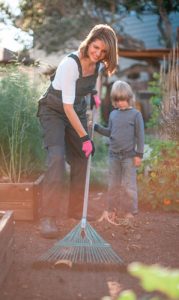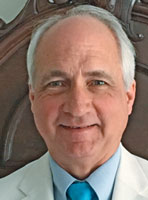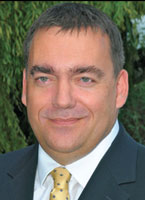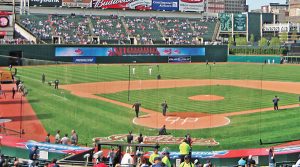ATLANTA — May 19, 2016 — Heat and fire resistant basalt fabrics, recycled fibers, 3-D body scanning and automated laser treated denim were just some of the highlights during the thirteenth edition of Techtextil North America, and third Texprocess Americas that took place May 3-5, 2016, at the Georgia World Congress Center in Atlanta. The show was once again colocated with JEC Americas in Hall B of the convention center. The trifecta of three-shows-in-one provided a global gathering of technical textiles, nonwovens, textile machinery, composites, sewn products and equipment.
The event spanned more than 166,000 net square feet and hosted 589 Techtextil North America, Texprocess Americas and JEC Americas exhibitors attracting 9,357 visitors, which was up from the 2014 show. Country pavilions included Italy, Belgium, China, Germany, China, Taiwan, Business France and SEAMS Made in USA. Techtextil North America’s numbers were strong and showed no wavering even with the nonwovens based IDEA show held over the same dates. Texprocess Americas 2016 has shown a consistent growth in the quality and amount of visitors and exhibitors over the past editions.
“The buzz and energy was extraordinary on the show floor,” said Dennis Smith, president, Messe Frankfurt North America. “We are proud to take these events to the next level as we better serve the US Sewn products industry, Made in America manufacturers and the Technical textile industry. We are a global business platform that will continue to attract potential new customers from North America, Latin America and around the world. We hope that all our exhibitors are looking to build new business relationship in the same approach. We look forward to the next chapter in our journey and would welcome everyone to our 2017 Techtextil edition in Chicago and the joint platform once again in Atlanta in 2018”.
Symposium 2016
With 20 symposium sessions being held throughout the three show days and four extra bonus sessions taking place the Symposium was buzzing with visitors and speakers discussing the new and innovative topics in the industry. Welding, Smart future textiles, Sustainability, Automation, 3D, Reshoring, Sewing technologies and more were a part of the nearly 90 presentations that were made during Techtextil North America and Texprocess Americas.
“The attendance was great, and the response was even better. Probably the best response I’ve seen from a presentation at a technical conference,” said speaker Fred Humiston, Sigma Technologies International.
Attendee Statements:
USA: Renuka Dhandapani, Cotton Incorporated stated that “I had a good time walking the show and interacting with the vendors about their products.”
USA: Bart Krulic, Ascend Performance Materials stated “AWESOME!”
USA: Lynette Grant, Tranglah LLC stated “I love the diversity of the different vendors here. I’m developing a small business so I’m looking for one hub where I can get a wealth of information to get the business going, so it has been very informative for me. Once a year, it’s very helpful to come to one place and get everything you need.”
Exhibitor Statements:
Mexico: Cruz Ortiz, Textiles Technicos states “Shows like Techtextil North Americas allow us to hear from our providers and suppliers based in America, which in turn gives us the opportunity to constantly work alongside their demands”
USA: Steve Warner, Beaverlake 6 Report stated “No amount of texting, emails or telephone calls can measure up to the networking done at trade shows like Techtextil North America. Show traffic at our booth was impressive. We saw companies we didn’t know were in the technical textiles industry who are making fascinating products. It was clear, too, the colocated shows pulled in visitors who we otherwise might not have reached, including protective apparel manufacturers there attending the Texprocess Americas show and composite manufacturers attending because of the JEC show. As a result, we gained more than 150 leads and concluded two deals right on the show floor.”
USA: Jason Conidi, Eastman Machine Co., stated, “The curiosity at Texprocess Americas was great and interest in automation technologies was high”
Posted May 19, 2016
Source: Messe Frankfurt









